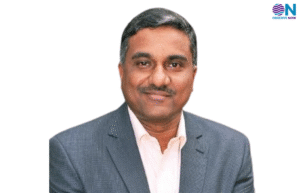Google Launches AI Academy in India to Empower 10,000 Startups in Partnership with MeitY
Google has launched the Google for Startups AI Academy India 2024, a major initiative aimed at boosting India’s expanding AI ecosystem. Partnering with the Ministry of Electronics and Information Technology (MeitY) Startup Hub, the program underscores Google’s commitment to advancing AI-driven startups in India as the country’s AI sector garners global attention for its skilled talent pool and thriving entrepreneurial landscape.
According to a recent NASSCOM report, India’s generative AI sector has seen a 3.6-fold increase in startups since 2023, with advancements spanning foundational AI models to transformative applications across industries. To support this growth, Google and the MeitY Startup Hub aim to empower 10,000 Indian startups with vital resources to harness AI, in alignment with the IndiaAI Mission, a national initiative dedicated to leveraging AI for societal progress.
The Google for Startups AI Academy India 2024 will operate in seven cities from November to December 2024, collaborating with key partners such as Kerala Startup Mission, T-Hub, MATH, IHFC-IIT Delhi, NSRCEL IIM Bangalore, SINE IIT Bombay, IIT Madras Incubation Cell, and IIMA Ventures. NASSCOM AI and People+AI will also contribute to the academy’s impact.
The program features a three-day boot camp tailored for early-stage AI-focused startups addressing key sectors like healthcare, climate, agriculture, education, financial inclusion, cybersecurity, and public infrastructure. Eligible startups—those with a minimum viable product and at a funding stage up to Pre-Series A—will gain access to expert-led workshops on responsible AI practices, AI-driven marketing, and storytelling, as well as personalized mentoring, up to $350,000 in Google cloud credits, and extensive networking opportunities within Google’s expert network.
Google’s support for Indian startups includes a multi-tiered framework: Startup School for foundational training, AI Academy for specialized medium-level support, and Google for Startups Accelerator for intensive growth-focused assistance. Through the Google for Startups AI Academy, Google reaffirms its dedication to fostering innovation and empowering India’s AI-driven startup landscape to make a transformative societal impact.






















